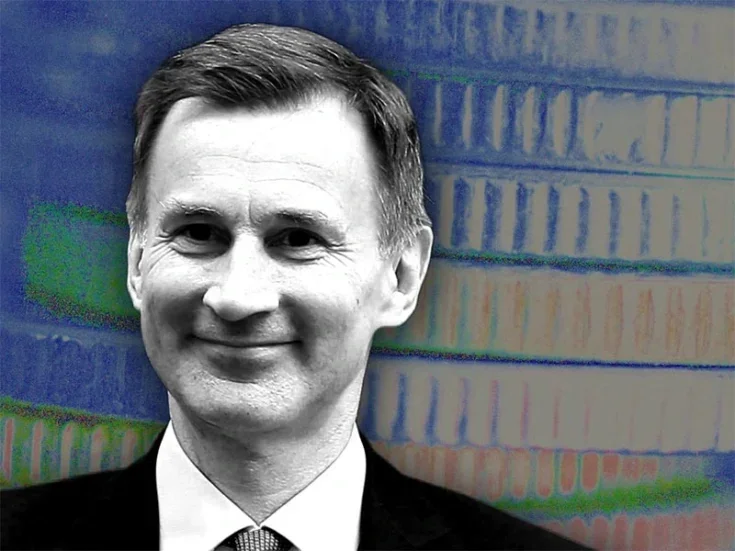
For anybody wanting to flee the gloom of London, there’s a whiff of optimism to be found in the Far East. But is Hong Kong losing its expat crown to Singapore, asks O’ar Pali
On a recent visit to Hong Kong a banker friend decided that he wanted to ditch his suit and change into something a little more dressed down. But instead of making a detour to his home, he arranged for his live-in help to drop his more casual attire at the restaurant where we were having dinner. Sounds odd? Not by Hong Kong standards.
The attractive lifestyle and the favourable exchange rate (£1 to 11 HKD) are what keep tourists and expats coming to Hong Kong even during these rough times. As the pound continues to weaken against the euro and dollar, job-seekers and tourists alike are finding alternative destinations in order to stretch their money that little bit further.
Hong Kong is definitely such a city: the average cab fare around town is around £2 to £5, and a live-in maid will cost close to £500 per month.
Indeed, on my last visit to Hong Kong the region appeared anything but gloomy. Party-goers were out in full swing around the Lan Kwai Fung district, restaurants and clubs were packed and people were partying (on a weekday) until the morning hours. The expat community in Hong Kong enjoys a very different life from that in the UK.
Those who still have a job – and they are the majority – have houses in some of Hong Kong’s best neighbourhoods, such as Repulse Bay; the services of live-in help; and, in some cases, even paid school tuition, all by compliment of their companies.
While the world at large is feeling the mighty grasp of the credit crunch, the expat community in the region can still afford to live it up. Indeed, Hong Kong, long regarded as the gateway to China’s financial markets, appears set to come out of the crisis ahead of London and New York, and perhaps even Singapore.

No doubt having China, the new economic giant and now officially the world’s third largest economy, as your big brother can be of some help during these difficult times, giving out pocket money even when you lose it carelessly to playground bullies like the US.
In 2009 China is not only encouraging more Chinese tourism in Hong Kong by making it easier for its citizens to gain Hong Kong visas and spend their well-earned cash, but it is also expanding a number of its Hong Kong offices, thus increasing employment in the region.
Carrie Chau, managing director of Hong Kong’s Institute of HR, confirms that ‘China has already announced measures to aid Chinese tourism to Hong Kong and has unfolded strategic plans to further develop the Pearl River Delta. Hong Kong and Macau should profit from that. That is strategic and long-term, which would position Hong Kong into driving the development of the whole region.’
This confident view is not shared by all, however. On 1 January, the South China Morning Post, the region’s most influential English-language daily, carried a survey which named Hong Kongers as the most pessimistic people on the planet, only twelve short months after ranking first globally for optimism.
When asked about how Hong Kong would look in 2009, 64 per cent stated that they expected a worse year ahead. Indeed, Hong Kong may have much to worry about if the prediction of some economists regarding ‘the big Chinese Credit Crash of 2009’ proves true.
In this case, the impact of Hong Kong’s affiliation with China would cause long-term damage to the region, although Hong Kong would eventually bounce back, largely because it is still one of the few westernised bases in Asia.
There is no question that the West has definitely made its mark on Hong Kong, as can be witnessed by the never-ending procession of Italian and French designer bags adorning ladies’ shoulders and by the red soles of Christian Louboutin shoes clicking across the Landmark Mall.
Still, the most significant effect has been on Hong Kong’s financial district. All you have to do is look up and you will see the neon signs of ING, Citigroup, AIG and Bank of America adorning the tallest skyscrapers.
American investment banks Merrill Lynch (now part of Bank of America), Goldman Sachs and Morgan Stanley all have bases in Hong Kong, employing over 10,000 people between them. British banks also have a strong presence in the banking community in the region: HSBC and Standard Chartered are prominent.
A director for Barclays Capital bank in Hong Kong explains that although they have had to downsize there, ‘markets are beginning to calm and we expect to see activity pick up in the second half of the year, with Asia expected to grow in excess of 4 per cent’.
However, he adds: ‘Hong Kong is predicting a recession this year and this will obviously continue to put more pressure on the financial-services industry.’
Nevertheless, with unemployment low at 3.8 per cent (the UK’s is 5.6 per cent and rising), it would appear that Hong Kongers are still better off than most, with the downturn not as dire as that witnessed across the West.
Jonathan Watkin, author of the Retirement Savings Handbook 2009, asserts that there will be more opportunities in 2009 in Asia than in the Eurozone, the UK or the US, particularly within banking and the financial services and especially in risk management.
He explains that while companies are making cutbacks, the number of redundancies is not that high. ‘To give you an idea,’ he says, ‘I met with the CEO of Fidelity Asia just now and he said, “We have done our downsizing,” and I know they have only let a couple of people go. I am not trying to sound upbeat, I just think that the situation here is better.’
A managing director who made the move to Hong Kong in September to join the local office of a top-tier global private-equity firm explains: ‘I lived in London before and frankly I found day-to-day life [since the credit crunch] very depressing. I thought, not necessarily that I would get sacked, but that it wasn’t that much fun, going to work. I just thought there were more opportunities in Asia.
‘The environment here is more optimistic and there is still money in Asia, which makes a difference.’ With a laugh, she adds: ‘I will tell you one thing about coming to Hong Kong: it is much easier to have a busy full-on job here than it is in London because you don’t have the commute, and you have more support here, you get more help in the home.’
Living in Hong Kong does have its downsides. Although the most westernised destination in Asia, the (at times eccentric) cultural differences can still leave the westerner stunned. For example, on a Sunday (their day off), domestics will picnic not by the water or in the park, but on the pavement in everyone’s way.
They will be surrounded by a stream of people walking around wearing Sars masks in the street while every restaurant, bar and club is a smoking venue, and wedding receptions are often held in restaurants at the mall. After all, in Hong Kong the prestigious L’Atelier de Joël Robuchon is located in the Landmark shopping centre.
In 2009, however, it is fast-food chains, not Michelin-starred restaurants, that are expected to pop up in the malls and streets. Carrie Chau observes that one of the business areas seeing significant economic growth is the lower-end products and services, ‘so we hear news about fast-food restaurants needing to expand due to rising business’.
It is this expected change in Hong Kong’s economy, not to mention the much-debated fall of the Chinese market, that is encouraging some European journalists and economists to declare that Singapore, not Hong Kong, will be Asia’s version of Zurich.
Rachel Yin, a headhunting executive at ExecCapital in Singapore, assures me that her clients, predominantly banks, still see a lot of good opportunities in the region. ‘Of course it is getting more of a challenge as well because client requirements are very specific,’ she says, ‘but from our angle there is still good news.
‘Businesses are still hiring.’ In response to Singapore’s significant cutbacks, she cautiously states: ‘I think if you look at Singapore as a whole, you will see areas cutting down, but there are also areas which are selectively hiring.’
Despite the constant reassurance from the financial community in Singapore, the significant number of job cuts and business closures, when compared to Hong Kong, seems to leave room for doubt.
Fran Thompson from FTSE Asia Pacific Index is one such sceptic, stating that one reason why Singapore will probably not come out of this recession ahead of Hong Kong is because it is much more exposed to South East Asian markets, which are all struggling. Also, Singapore’s banking sector has been hit quite heavily. ‘There are a lot more hedge funds that have closed in Singapore than in Hong Kong so far,’ she says.
Thompson believes that Hong Kong, which unlike Europe and the US has not had an undisturbed bull run for the past ten years, is better prepared to weather the recession. ‘Hong Kong is closely tied to China, and China is still charging ahead and has got an awful lot of clever ideas up its sleeve that we have not even seen yet,’ she says.
Hong Kong’s economy was shaken during the Asian Crisis in 1997, by the Sars scare in 2003 and again by the bird-flu epidemic in 2004. Because of this baptism of fire, Hong Kongers are more used to taking a hit and getting back up again.
Of course it is also significant that, unlike many westerners, Asians have a high savings rate and are known to be very cautious in taking up debt. This is a main reason why, for individuals in Asia, the situation is not as dire as that facing the unemployed in the UK and US.
Rachel Yin agrees: when discussing senior executives who have been made redundant, she affirms that ‘the majority of them are financially doing fine. They are just worried that they may be a bit bored in the next two years and will not have anything to do’.
Any doubts I may have had on the subject were removed during a visit to the home of a family friend, who until recently held a senior position at one of the global banks in Hong Kong. Though I had expected the conversation for the evening to be focused mostly on job cuts and the credit crunch, the truth was fortunately a little less gloomy.
He was in fact far busier discussing his new boat, which finally, after three frustrating years, had reached completion. Looking at his wife he exclaimed, ‘It couldn’t come at a better time, could it honey? At least it will give us something to do’.
The overwhelming impression one takes away from Hong Kong and even Singapore is that most people and businesses in two of Asia’s leading financial cities are simply waiting to ride out the crisis. Their view is that they have been through this before and they can do it again.
Lan Kwai Fong founder Allan Zeman epitomises this view when discussing the current financial tsunami, as it is called in the region: ‘We’ve faced [financial crises] in the past and overcome them. I do think there’s a pot of gold at the end of the rainbow and Hong Kong will have a much brighter future.’
—
WHERE TO STAY
The Conrad Hong Kong, with its 513 guestrooms, offers travellers a superb location, rising 61 floors above Pacific Place, an upscale retail and entertainment complex in Hong Kong’s central business district. Its rooms are suitably luxurious and well-appointed.
The hotel can also claim the newly refurbished, Michelin-starred Golden Leaf restaurant. It offers fine Cantonese cuisine from chef So Kai Chiu amid a rich interior. Golden Leaf is an especially popular lunch venue in the financial district, thanks to its dim sum lunch special.
The Pacific Place shopping centre includes an array of luxury brands from Hermès to Dior, two department stores, gourmet dining and stadium-seating cinema — plenty of distraction for your time outside a boardroom.
+852 252 13838
www.conradhotels.com
Contact the Hong Kong Tourist Board for more information on visiting Hong Kong
www.discoverhongkong.com








